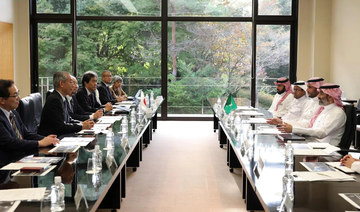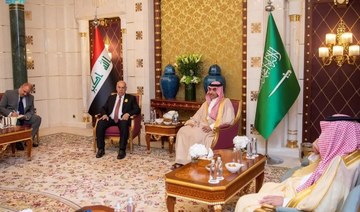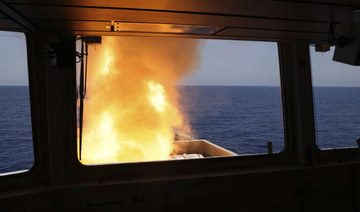ADDIS ABABA: Ethiopia has lifted a ban on domestic workers moving overseas after passing a new law to guard against ill-treatment, a government official said Thursday.
Africa’s second-most populous country instituted the ban five years ago following reports of abuse, and complaints that employment agencies lured Ethiopians into working abroad in illegal and appalling conditions.
Abebe Haile, a director at the labor ministry, said the new law regulates employment agencies that connect jobless Ethiopians with work in foreign countries.
The government has also opened training centers for low-skilled workers heading abroad.
“Taking these preparations into account, this ban has been lifted, so we’re now ready to start the overseas employment services,” Abebe told a press conference.
Ethiopia is one of the continent’s poorest countries and, according to the International Labor Organization (ILO), a major source of migrants particularly to the Middle East, where there were around 460,000 Ethiopian workers in 2013 when the ban came into force.
At the time reports of worker abuse were rampant, including a video that emerged online showing an Ethiopian maid in Lebanon being dragged by her hair in public by her employers. She later killed herself in hospital.
While some Ethiopians work legally in the Middle East, others travel without visas despite having to cross through war-torn Yemen and risk a perilous boat trip across the Gulf of Aden.
Last week at least 30 people drowned when a boat carrying Somali and Ethiopian migrants capsized off Yemen’s coast.
Saudi Arabia — a popular destination for Ethiopian migrants — has carried out mass deportations of illegal foreign workers in the past few years.
Riyadh last year announced it would begin deporting illegal migrants again and Ethiopia’s foreign ministry told state media that more than 14,000 of its citizens have been repatriated since November.
Abebe said Ethiopia has signed bilateral agreements with Kuwait, Jordan and Qatar to govern the flow of low-skilled workers, and is working on agreements with other nations.
Ethiopia lifts ban on domestic workers moving overseas
Ethiopia lifts ban on domestic workers moving overseas

Robotics festival in Sabya to boost student skills
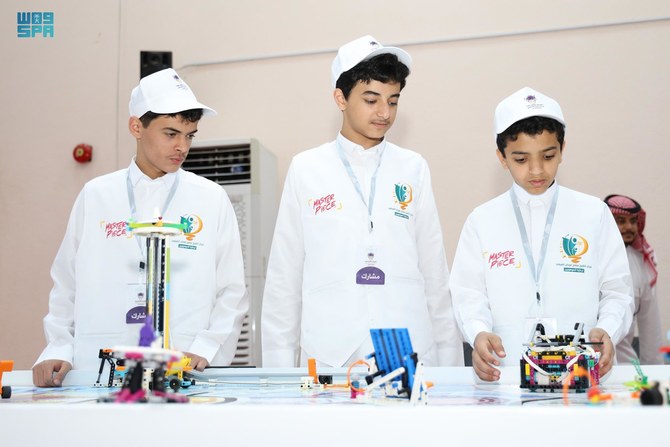
- The event was attended by Sabya Gov. Sultan bin Ajami bin Munikhar
- The festival also included artistic performances, films, speeches, and various other activities
JAZAN: The General Administration of Education in the Jazan region, represented by the Education Department of Sabya governorate, organized the Robotics and Artificial Intelligence Festival on Friday.
The event was attended by Sabya Gov. Sultan bin Ajami bin Munikhar.
It showcased the experiences of participating students, featuring robotics challenges, competitive rounds, creative designs, and research projects.
The festival also included artistic performances, films, speeches, and various other activities.
Malhi bin Hassan Aqdi, director general of education in Jazan region, emphasized the importance of the festival in enhancing the learning process, making it more enjoyable and effective. He said such festivals help students learn scientific concepts, develop experiments and discoveries, enhance social skills and cooperation, and acquire various programming skills.
Othman bin Mohammed Masli, director of education in Sabya, highlighted the strong connection between the sector, robotics and AI.
He said these fields drive growth and innovation while contributing to the Kingdom’s sustainable development goals. The festival offers a platform to showcase students’ creativity, highlight their participation, and inspire them to represent their nation in various forums.
Head of UAE national media officer meets with Saudi, GCC ministers
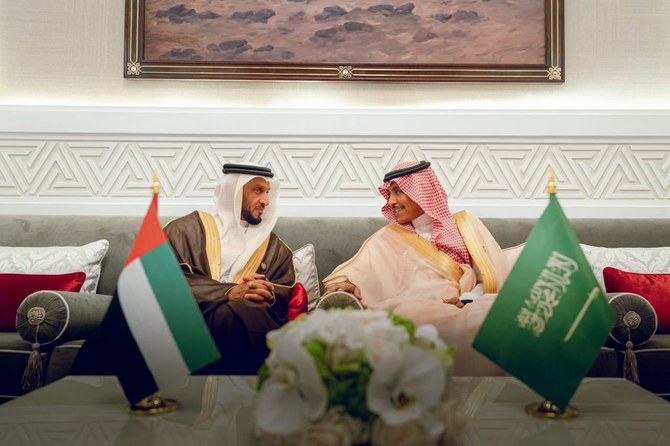
- Discussed ways to strengthen media cooperation between GCC countries
DOHA: The head of the UAE’s national media office met with informational ministers from Gulf Cooperation Council countries in Doha on Friday, Emirates News Agency reported.
Sheikh Abdulla bin Mohammed Al-Hamed, who is also chairman of the UAE Media Council, met with Saudi Arabia’s media minister Salman bin Yousef Al-Dosari and Abdulrahman Bdah Al-Mutairi, the Minister of Information and Culture of Kuwait.
Sheikh Abdulla also held talks with Ramzan bin Abdullah Al-Noaimi of Bahrain and Sheikh Hamad bin Thamer Al-Thani, chairman of Qatar Media Corporation.
They discussed ways to strengthen media cooperation between the GCC countries and developing joint initiatives to advance the media industry in the region.
Yemen’s Houthis say they launch attacks on 3 ships including one in Mediterranean
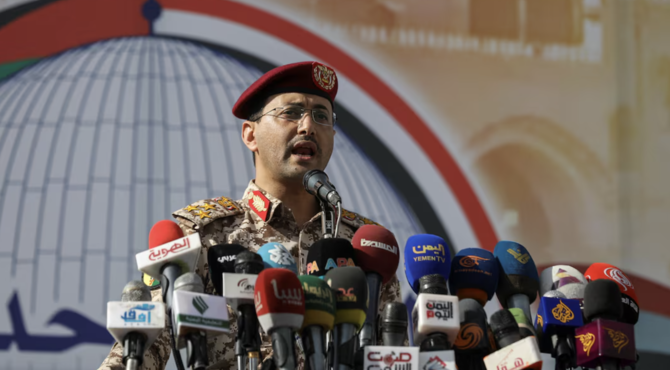
- Attacks are latest in months-long campaign of Houthi strikes against regional shipping
CAIRO: Yemen’s Houthis have launched attacks on three ships in the Red Sea, Mediterranean Sea and Arabian Sea, the Iran-aligned group’s military spokesman Yahya Sarea said on Friday.
The attacks are the latest in a months-long campaign of Houthi strikes against regional shipping in what the group says is solidarity with Palestinians fighting Israel in the Gaza war.
Sarea said in a televised speech that Houthi forces had targeted the Yannis ship in the Red Sea, the Essex in the Mediterranean Sea and MSC Alexandra in the Arabian Sea.
Houthis “fired several missiles at the ship Essex in the Mediterranean Sea while it was violating the decision ban that prevents entry into occupied Palestinian ports,” Sarea added.
He did not clarify when the attacks took place.
Earlier this month, the leader of Yemen’s Houthis, Abdul Malik Al-Houthi had said that all ships heading to Israeli ports would be attacked by the Iran-backed group, not just those in the Red Sea region which it has sought to strike before.
The Iran-aligned Houthi militants have launched repeated drone and missile strikes on ships in the crucial shipping channels of the Red Sea, the Bab Al-Mandab strait and the Gulf of Aden since November to show their support for the Palestinians in the Gaza war.
This has forced shippers to re-route cargo to longer and more expensive journeys around southern Africa and has stoked fears that the Israel-Hamas war could spread and destabilize the Middle East.
Pakistan’s commerce minister calls PM’s UAE visit ‘historic’ after $10 billion investment commitment
Pakistan’s commerce minister calls PM’s UAE visit ‘historic’ after $10 billion investment commitment
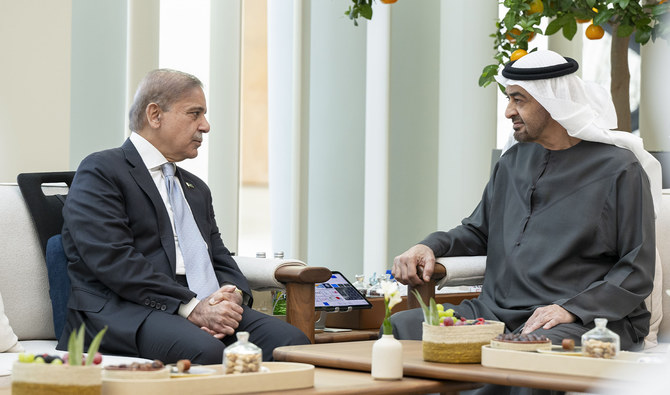
- Jam Kamal says the UAE has left to Pakistani authorities to identify areas where the investment will be used
- PM Sharif met UAE President Mohammed bin Zayed during a daylong trip to Abu Dhabi on Thursday
ISLAMABAD: Pakistan’s commerce minister Jam Kamal Khan on Friday described Prime Minister Shehbaz Sharif’s visit to the United Arab Emirates as “historic,” as the Gulf state committed to invest $10 billion in multiple economic sectors of the South Asian country.
Sharif met UAE President Mohammed bin Zayed Al Nahyan during a daylong trip to Abu Dhabi. He took a high-level delegation with him amid a concerted push by Pakistan to seek foreign investment as it navigates a challenging path to economic recovery.
“The UAE visit was historic yesterday,” Kamal said while addressing a joint press conference with information minister Ata Tarar in Islamabad.
“I don’t think this has ever happened before that the President expresses confidence in a first go on a normal visit and that they announce a $10 billion commitment in the first go,” he added.
Addressing Pakistan’s efforts to put its economy back on track, Kamal said the government had taken several initiatives to deal with the circular debt, set revenue collections targets for the Federal Board of Revenue and increase remittance inflows.
He maintained reforming socio-economic structures, identifying weak areas and improving the overall business environment were uphill tasks carried out by the government.
He said the country’s commerce, energy and maritime ministries were already engaged with the UAE, adding the government was working on projects that would create greater employment opportunities.
The commerce minister informed the UAE government had left it to the Pakistani authorities to identify and highlight areas where it wanted to utilize its investment.
The UAE is one of Pakistan’s closest allies and has frequently bailed out the South Asian country, joining Saudi Arabia and China in rolling over billions of dollars of loans to Pakistan last year to help it clinch a last-gasp deal with the International Monetary Fund (IMF) and avoid a sovereign debt default.
It is also Pakistan’s third-largest trading partner, after China and the United States. Policymakers in Pakistan consider the Gulf state an optimal export destination due to its geographical proximity, which minimizes transportation and freight costs while facilitating commercial transactions.
The UAE is also home to more than a million Pakistani expatriates and the second-largest source of remittances to the South Asian country, after Saudi Arabia.
Germany, Portugal say time not ripe to recognize Palestinian state
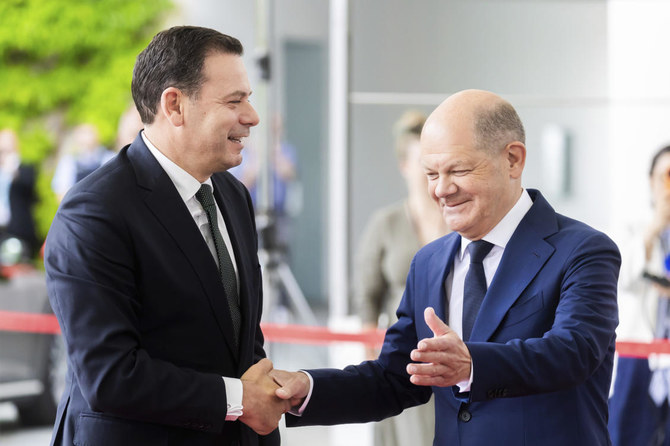
- “There is no clarity about the territory of the state and other questions related to it,” Scholz said
- Montenegro said Portugal was also “not in the position to” recognize a Palestinian state
BERLIN: The leaders of Germany and Portugal said Friday the time was not ripe to recognize a Palestinian state, after three other European nations announced plans to do so.
“We have no reason to recognize the Palestinian Authority as a separate state now,” Chancellor Olaf Scholz told a press conference after talks with Portuguese Prime Minister Luis Montenegro.
“There is no clarity about the territory of the state and other questions related to it,” he said.
“What we need is a negotiated solution between Israel and the Palestinians that amounts to a two-state solution... but we are still a long way from there,” he said.
“Symbolic recognition of statehood does not bring us further” toward the goal, he added.
Speaking at the same press conference, Montenegro said Portugal was also “not in the position to” recognize a Palestinian state.
“We are waiting for the (related) issues to be further discussed within the European Union,” he added.
Ireland, Norway and Spain on Wednesday announced they intended to recognize the State of Palestinian next week.
The announcement drew fury from Israel, which warned of “serious consequences” for ties with the European nations.
For decades, formal recognition of a Palestinian state has been seen as the end goal of a peace process between Palestinians and Israel.
The United States and most western European nations have said they are willing to one day recognize Palestinian statehood, but not before agreement is reached on thorny issues like final borders and the status of Jerusalem.


